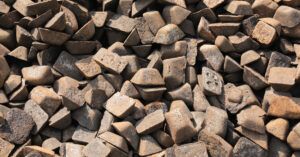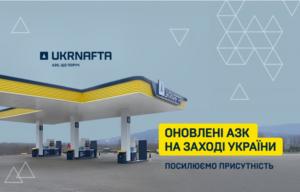
The impact of mortgages on the housing market in Ukraine remains limited: less than 3% of housing is purchased on credit, with the share varying significantly by region, according to the NBU’s financial stability report for December 2025.
According to the regulator’s estimates, in the Kyiv region, the share of home purchases with mortgages is almost 9%, while in the central, southern, and eastern regions, new mortgages are “almost non-existent.” In the segment of new buildings up to three years old, mortgages are used significantly more often — the NBU indicates that every fifth apartment in this segment is purchased on credit, as the eOselya program is concentrated there.
The NBU draws attention to the low mortgage rates in complexes under construction and notes that about 44% of transactions are for ready-built housing from developers. At the same time, almost 300 complexes under construction have been accredited for sale through eOselya, but most of them have not yet sold any apartments with mortgages. The regulator expects mortgage lending to pick up after the state support mechanisms are updated and, at the same time, emphasizes the need for other steps, including the implementation of Directive 2014/17/EU on mortgage credit, the introduction of European property valuation standards, and increased transparency of real estate price data and control over construction financing.

In January-November of this year, Ukraine increased exports of processed pig iron in physical terms by 49% compared to the same period last year, to 1 million 734,104 thousand tons.
According to statistics released by the State Customs Service (SCS) on Friday, during the specified period, pig iron exports in monetary terms increased by 48.5% to $669.118 million.
At the same time, exports were mainly to the United States (74.77% of shipments in monetary terms), Italy (13.09%), and Turkey (4.13%).
In the first 11 months of this year, the country imported 39,000 tons worth $78,000 from Germany (51.95%) and Brazil (48.05%), while in January-November 2024, 25 tons of cast iron worth $60,000 were imported.
As reported, on March 12 of this year, in accordance with President Donald Trump’s decision, the US began imposing a 25% tariff on imports of Ukrainian steel products, except for cast iron.
In 2024, Ukraine reduced its exports of processed cast iron in physical terms by 3.4% compared to 2023, to 1 million 290.622 thousand tons, and in monetary terms by 6.1%, to $500.341 million. Exports were mainly to the US (72.64% of shipments in monetary terms), Turkey (8.03%), and Italy (7.30%).
For the whole of 2024, the country imported 38 tons of pig iron worth $90 thousand from Germany, while for the same period in 2023, it imported 154 tons of pig iron worth $156 thousand.

The volume of passenger car imports to Ukraine, including cargo-passenger vans and racing cars (UKT ZED code 8703), exceeded $5.48 billion in January-November 2025, which is 37.2% more than in the same period of 2024 (almost $4 billion) and a quarter more than in the whole of 2024.
According to statistics released by the State Customs Service of Ukraine, the growth rate of passenger car imports has thus accelerated, reaching 33% in the first ten months of the year compared to the same period in 2024.
In particular, in November this year, passenger cars worth $663.3 million were imported into Ukraine, which is 84% more than in November last year.
The top three suppliers of cars to Ukraine in the first 11 months of this year were the US, Germany, and China, while last year they were the US, Germany, and Japan.
In particular, car deliveries from the US increased by 28% to $940 million, and their share in the structure of car imports was 17.4% compared to 18.4% a year earlier.
Cars worth $933.8 million (53.4% more) were imported from Germany to Ukraine, and almost $870 million (15.9% of passenger car imports) from China. Last year, imports from Japan, which was among the top three leaders, amounted to $482.8 million (11.6%).
Imports of passenger cars from other countries during the period amounted to $2.74 billion, compared to $2.19 billion in January-November 2024.
At the same time, in the first 11 months of this year, Ukraine exported only $7.23 million worth of such vehicles, in particular to the UAE, Canada, and the US, while a year ago, during the same period, the country supplied $9.5 million worth of such vehicles to foreign markets, mainly to Canada, Germany, and the US.
According to the State Customs Service, passenger cars accounted for 7.27% of the total structure of imports to Ukraine in January-November 2025 and 0.02% of the export structure.
As reported, in 2024, passenger cars worth $4.385 billion were imported into Ukraine, which is 8% more than a year earlier, and $10.1 million worth were exported (2.7 times less).

Imports of electric telephone or telegraph apparatus and videophones (HS 8517) to Ukraine in January-November increased by 27.6% compared to the same period in 2024, reaching $1.436 billion, according to statistics from the State Customs Service.
According to statistics, the largest volume of these products was imported from China (55.4%, or $795.7 million), Vietnam (15.3%, $220 million), and the United States (8.2%, $117.9 million). Last year, it was also China (64%, $720.6 million), Vietnam (16.3%, $183.6 million), and the United States (4.3%, $48.2 million).
In November this year, Ukraine imported telephone and telegraph equipment worth $159.8 million, which is 33.6% more than a year ago.
At the same time, exports of these products from Ukraine in January-November 2025 amounted to $111.2 million, which is 32.2% more than in the first 11 months of last year. Supplies were mainly to Hungary (70.2%), Poland (23.9%), and the Netherlands (less than 1%). During the same period in 2024, products were exported mainly to the same countries, but Hungary’s share was 63.4%, Poland’s was 27.8%, and the Netherlands’ was 3.6%.
According to the State Customs Service, in 2024, telephone or telegraph apparatus and videophones worth almost $1.26 billion were imported into Ukraine, which is 10% more than in 2023.

There are no official government statistics on the percentage of Ukrainian citizens who use cryptocurrencies as of December 2025. In practice, estimates from analytical companies and the results of sociological surveys are used, but the figures vary significantly due to different definitions of “use” (ownership, investment experience, real transactions, transfers).
The most frequently cited estimate for the entire country is data from Triple-A: “15.72% of Ukrainians own cryptocurrency,” which is equivalent to approximately 6.5 million people (estimate of the share of the total population).
Survey data gives higher values for certain population groups. For example, a Gradus Research study commissioned by WhiteBIT (April 2024) among residents of cities with a population of 100,000 or more (aged 18-60, 883 respondents, excluding temporarily occupied territories and areas of active hostilities) showed that 26% of respondents reported owning cryptocurrencies.
Another benchmark is an Ipsos study commissioned by WhiteBIT (April-May 2025) among “financially active” city dwellers aged 18-65 (650 respondents in cities with a population of 100,000 or more). The published results indicate that 25% already had experience investing in cryptocurrency, while another 23% stated their intention to start in the near future. At the same time, a note on the methodology indicates the composition of the sample, which included, in particular, respondents who do not reject investing in cryptocurrency and those who already keep part of their savings in cryptocurrency. This is important to consider when interpreting the results as an indicator of the “financially active” audience, rather than the entire population.
If we interpret “use” as strictly as possible — as personally conducting transactions — then the Gradus study gave a more “conservative” lower limit: 5.1% of respondents reported that they had personally conducted transactions with crypto assets and/or blockchain (the same material separately noted a much higher proportion of experience in the 18-24 age group).
Chainalysis indirectly confirms Ukraine’s high level of involvement: in the Global Crypto Adoption Index 2025, Ukraine ranked first in the rating adjusted for population (and eighth in the overall rating), with the calculation taking into account the assessment of transaction flows and web traffic of crypto services.
The spread of estimates in 2024-2025 (from approximately 15-16% “ownership” to about a quarter in selected urban and “financially active” samples) is explained by the fact that ownership/investment experience is usually broader than the proportion of people who regularly use crypto assets in real transactions.
In the public legal field of Ukraine, virtual assets are not considered a legal means of payment – the text of the law “On Virtual Assets” explicitly states that virtual assets are not a means of payment on the territory of Ukraine and cannot be exchanged for goods, works, and services.
Financial regulators have also emphasized that cryptocurrencies do not fall under the regime of money/electronic money/currency values as interpreted by Ukrainian legislation and have pointed out the risks of transactions with them.
https://www.fixygen.ua/news/20251219/priblizno-16-ukrayintsiv-volodiyut-kriptoaktivami.html

UKRNAFTA, the largest network in Ukraine, is completing the renovation of Shell filling stations.
In particular, gas stations have already opened in western Ukraine. UKRNAFTA invites you to refuel your cars with consistently high-quality Euro 5 fuel, get great deals with our loyalty program, and simply experience a new level of convenience.
Addresses of the upgraded complexes:
Volyn region:
• Lutsk, 98 Rivnenska St.
• Lyuboml, Kyiv–Kovel–Yagodin highway, 497 km + 300 m
Ivano-Frankivsk region:
• Cherniyiv village, 86 Nadvirna Street
Zakarpattia region:
• Mukachevo, 3 Masaryk Tomáš Street
• Baranyntsi village, 9-B Obizna Street
• Klyachanovo village, 1 Avtomobilistiv Street
• Solomonovo village, 7 Yevropeiska Street
Lviv region:
• Velyki Hrybovychi village, 6 Lvivska Street
• Derevach village, 55 Stryiska Street
• Kamianopil village, 1-B Stare Selo Street
• Murovane village, 1-Z Kyivska Street
• Pasiky-Zubrytski village, 56 Dorozhna Street
• Rakovets village, PSK on the M-06 Kyiv–Chop highway
• Sokilnyky village, roadside service complex, Western bypass
• Chyzhykiv village, 1-A Ostrovska Street
• Krakovets town, Lviv–Krakovets highway, 65 km + 980 m
Rivne region:
• Bugayivka village, Kyivska Street, 10
• Mykhailivka village, Kyivska Street, 2-A
Ternopil region:
• Ternopil city, Mykulynetska Street, 46-B
• Ternopil city, Stepan Budny Street, 36-A
Chernivtsi region:
• Chernivtsi, 66 Galytskyi Shliakh St.
• Chernivtsi, 116 D. Lukianovych St.
• Korovia village, 30-B Chereiteiska St.
You can also find the updated gas stations in the UKRNAFTA app and get some nice discounts.
Comfort on the road and the enjoyment of aromatic coffee and delicious hot dogs and burgers are what await you at UKRNAFTA, the gas station chain near you!
JSC Ukrnafta, Ukraine’s largest oil production company, is the operator of the largest national gas station chain, UKRNAFTA. In 2024, the company took over the management of Glusco’s assets. In 2025, it completed an agreement with Shell Overseas Investments BV to purchase the Shell network in Ukraine. In total, it operates 663 gas stations.
The company is implementing a comprehensive program to restore operations and upgrade the format of its network of gas stations. Since February 2023, it has been issuing its own fuel vouchers and NAFTAKarta cards, which are sold to legal entities and individuals through Ukrnafta-Postach LLC.
The largest shareholder of Ukrnafta is Naftogaz of Ukraine with a 50%+1 share.
In November 2022, the Supreme Commander-in-Chief of the Armed Forces of Ukraine decided to transfer to the state the corporate rights of the company that belonged to private owners, which is now managed by the Ministry of Defense.